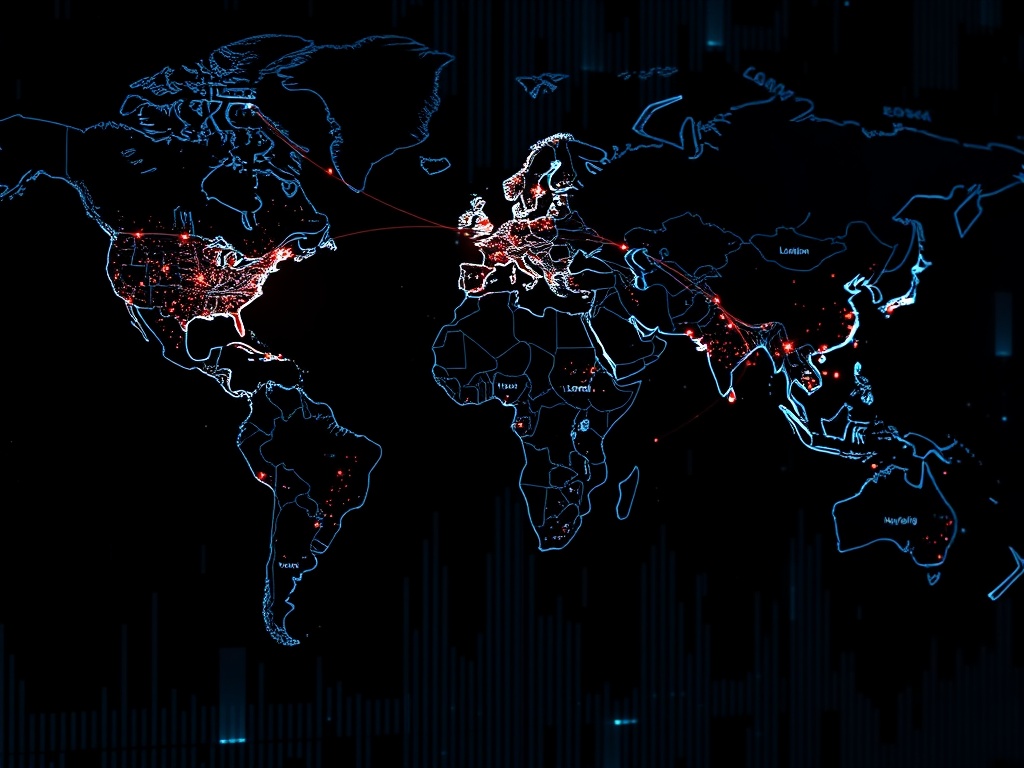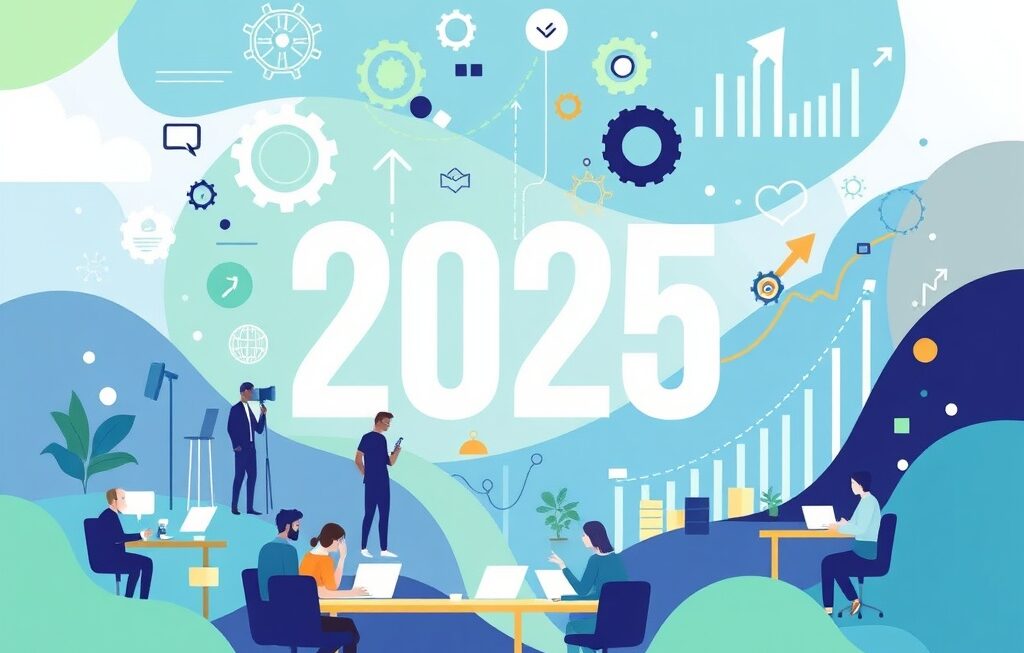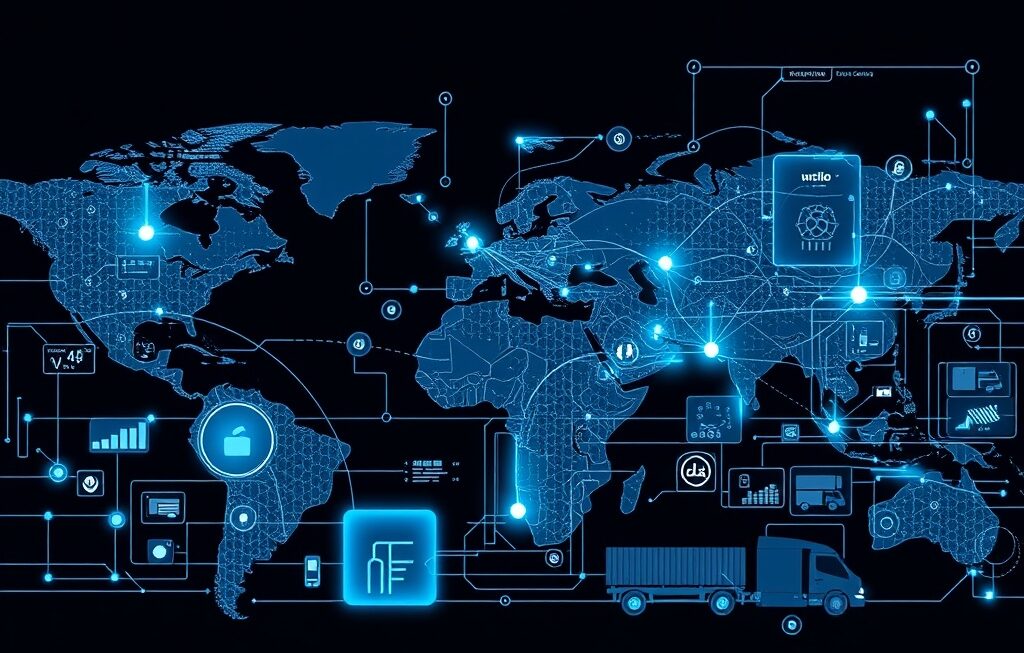Understanding the Forces Shaping the Future of the Global Economy
The Growing Importance of Global Business Trends
In an era defined by rapid digital transformation, geopolitical shifts, and sustainability challenges, understanding global business trends is no longer optional—it’s essential for survival. Businesses across industries are adapting to new technologies, consumer expectations, and economic realities that are reshaping how markets operate. From artificial intelligence and green innovation to cross-border e-commerce and talent mobility, the world of business is evolving faster than ever before.
Therefore takes a deep analytical look at the most influential global business trends in 2025 and beyond, revealing how they impact corporate strategy, investment decisions, and international markets.
The Rise of Digital Transformation in Global Markets
The wave of digital transformation is one of the defining global business trends of the decade. Companies worldwide are investing heavily in automation, cloud computing, and data-driven decision-making to remain competitive.
Artificial Intelligence and Automation Revolution
AI and automation are revolutionizing every sector—from manufacturing and logistics to marketing and customer service. McKinsey reports that AI could contribute up to $15.7 trillion to the global economy by 2030. Businesses that embrace automation are improving productivity, reducing costs, and enhancing customer experiences at unprecedented levels.
The Growth of Data-Driven Business Models
Data has become the new currency of global commerce. Firms that leverage big data analytics and machine learning can better predict consumer behavior, optimize supply chains, and create personalized marketing strategies.
For instance, Amazon and Alibaba have mastered the art of using AI-powered algorithms to enhance user experiences and drive sales—a model that continues to inspire global companies.
Sustainability and ESG: The New Business Imperative
Environmental, Social, and Governance (ESG) factors are no longer niche considerations; they are now central to corporate success. Investors and consumers alike are prioritizing ethical and sustainable business practices.
Green Innovation and Circular Economy
From renewable energy to waste reduction, sustainability initiatives are now key components of business strategy. Companies like Tesla, Patagonia, and Unilever lead the way in promoting eco-friendly operations, signaling a global movement toward cleaner production and conscious consumption.
The Financial Impact of ESG Policies
Financial markets are rewarding businesses with strong ESG performance. According to Bloomberg, ESG assets may surpass $50 trillion by 2025—nearly a third of global assets under management. Firms integrating ESG principles are better positioned to attract investors and mitigate long-term risks.
The Shift in Global Supply Chains
Globalization is evolving—not disappearing. The COVID-19 pandemic exposed vulnerabilities in traditional supply chains, pushing companies to diversify production and strengthen resilience.
Nearshoring and Regionalization
Many corporations are shifting from globalized supply networks to regional ones. For instance, U.S. companies are increasingly investing in Mexico and Central America, while European firms are exploring Eastern Europe as an alternative to Asia-based manufacturing.
Technological Integration for Supply Chain Resilience
Blockchain, IoT, and real-time tracking systems are enabling greater transparency and efficiency in logistics. These technologies allow businesses to monitor every step of the production process, reducing delays and ensuring accountability.
The Role of Emerging Markets in Global Growth
Emerging economies are at the forefront of the global business trends shaping the future. Asia, Africa, and Latin America are driving much of the world’s economic expansion through innovation, digital adoption, and demographic growth.
Asia’s Economic Leadership
China and India remain dominant forces in the global market, with strong technology sectors and growing middle-class populations fueling consumer demand. Southeast Asia’s digital economy, projected to exceed $1 trillion by 2030, is also creating vast opportunities for global investors.
Africa’s Rising Potential
Africa’s young population and expanding tech hubs—such as Lagos, Nairobi, and Cape Town—are making it a focal point for future growth. Increased foreign direct investment (FDI) and digital inclusion efforts are paving the way for a more connected and prosperous continent.
Innovation and the Global Workforce
The world of work is undergoing a transformation, with innovation and flexibility at its core.
Remote Work and Talent Mobility
The hybrid work model has become a standard. Companies are now hiring talent globally, allowing for more diverse and inclusive teams. Therefore Platforms like Upwork and Toptal illustrate how the gig economy is reshaping traditional employment models.
Upskilling and the Future of Work
With technology evolving rapidly, continuous learning has become a critical business investment. Organizations that prioritize training and development are more adaptable to market disruptions and more attractive to top talent.
Financial Technology (FinTech) and the Global Economy
FinTech is one of the fastest-growing global business trends, redefining how people manage, invest, and transfer money.
Digital Payments and Financial Inclusion
The global digital payments market is expected to exceed $14 trillion by 2027. Mobile wallets, cryptocurrencies, and contactless transactions are enabling greater accessibility and financial inclusion—particularly in emerging economies.
The Rise of Decentralized Finance (DeFi)
DeFi platforms are creating new ways for individuals and businesses to lend, borrow, and earn interest without intermediaries. Although regulatory challenges persist, DeFi continues to attract investors and reshape the financial landscape.
The Intersection of Technology and Consumer Behavior
Technology continues to influence consumer habits, forcing businesses to adapt rapidly.
The Metaverse and Virtual Commerce
The metaverse is no longer a distant concept—it’s becoming a significant driver of digital engagement. Global brands such as Nike and Gucci are experimenting with virtual storefronts and NFTs, merging the digital and physical worlds in new and exciting ways.
Personalization and Customer Experience
Consumers expect personalized interactions. Businesses leveraging AI and behavioral data to customize offerings are outperforming competitors. According to Salesforce, 66% of consumers expect companies to understand their unique needs and expectations.
Global Economic Outlook for 2025 and Beyond
Despite challenges such as inflation, trade tensions, and geopolitical uncertainty, the long-term global economic outlook remains optimistic.
Resilience Through Diversification
Businesses focusing on diversified revenue streams and regional adaptability are proving more resilient. The ability to pivot quickly in response to crises has become a defining competitive advantage.
Collaboration and Innovation as Growth Drivers
Partnerships between governments, startups, and corporations are fueling innovation across sectors. The push for sustainable energy, digital equity, and global health solutions is uniting diverse stakeholders toward shared progress.

In the end: Navigating the Future of Global Business
The global business trends shaping today’s markets highlight one clear reality—adaptability is the key to longevity. however Companies that embrace digital transformation, prioritize sustainability, and invest in innovation will lead the next era of global growth.
As businesses enter 2026 and beyond, success will belong to those who see trends not as challenges, but as opportunities to evolve, innovate, and redefine what it means to thrive in an interconnected world.




